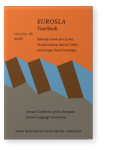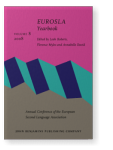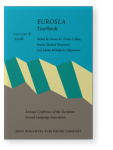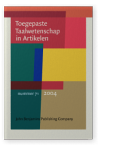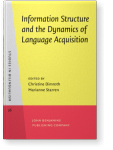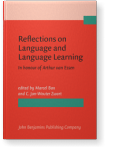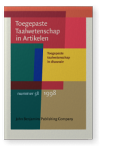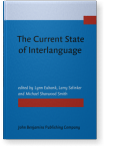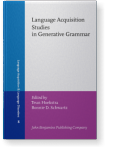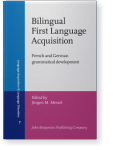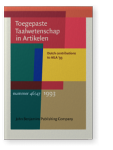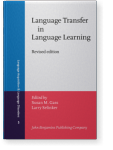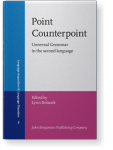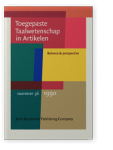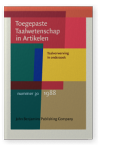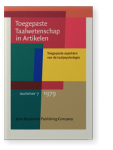Peter Jordens
List of John Benjamins publications for which Peter Jordens plays a role.
Yearbook
2008 The development of finiteness from a lexical to a functional category EUROSLA Yearbook: Volume 8 (2008), Roberts, Leah, Florence Myles and Annabelle David (eds.), pp. 191–214 | Article
Finiteness in adult Dutch is expressed by use of formal means of morpho-syntax, i.e. with both inflectional morphology and word order (verb-second). These formal means are linked to a projection of the functional category FIN as in:
FIN
SpecFIN FIN
FIN VP
SpecVP VP
At the initial stage of… read more
2006 Inversion as an artifact: The acquisition of topicalization in child L1- and adult L2-Dutch EUROSLA Yearbook: Volume 6 (2006), Foster-Cohen, Susan H., Marta Medved Krajnovic and Jelena Mihaljević Djigunović (eds.), pp. 101–120 | Article
Dutch is a so-called verb-second language, i.e. the finite verb typically occurs in second position with one constituent in initial position. The element in initial position is often the subject. However, if it is an adverb or an object, the subject occurs after the finite verb. This… read more
2004 Systematiek En Dynamiek Bij De Verwerving Van Finietheid Toegepaste Taalwetenschap in Artikelen 71, pp. 9–22 | Article
In early Dutch learner varieties, there is no evidence of finiteness being a functional category. There is no V2nd: no correlation between inflectional morphology and movement. Initially, learners express the illocutive function of finiteness through the use of illocutive markers, with the non-use… read more
2003 Finiteness in Germanic languages: A stage-model for first and second language development Information Structure and the Dynamics of Language Acquisition, Dimroth, Christine and Marianne Starren (eds.), pp. 65–93 | Article
2001 17. Theoretical approaches to second-language learner varieties Reflections on Language and Language Learning: In honour of Arthur van Essen, Bax, Marcel and Jan-Wouter Zwart (eds.), pp. 237–252 | Chapter
1998 Tweede-Taalverwerving in Discussie Toegepaste taalwetenschap in discussie, pp. 77–85 | Article
Universal aspects of L2 learner varieties are currently being discussed with respect to the issue of the 'L2-initial state'. Minimal Tree (Vainikka & Young-Scholten, 1996), Full Transfer/ Full Access (Schwartz & Sprouse, 1996) and Valueless Features approach (Eubank, 1996) are three approaches that… read more
1995 Prominence in applied linguistics: Bill Rutherford The Current State of Interlanguage: Studies in honor of William E. Rutherford, Eubank, Lynn, Larry Selinker and Michael Sharwood Smith (eds.), pp. 11–16 | Article
1994 From Ajunct to Head Language Acquisition Studies in Generative Grammar, Hoekstra, Teun and Bonnie D. Schwartz (eds.), pp. 119–150 | Article
1994 Acquiring German and French in a Billingual Setting Bilingual First Language Acquisition: French and German grammatical development, Meisel, Jürgen M. (ed.), pp. 3–14 | Article
1992 Discourse Functions in Interlanguage Morphology Language Transfer in Language Learning: Revised edition, Gass, Susan M. and Larry Selinker (eds.), pp. 138–175 | Article
1991 Linguistic Knowledge in Second Language Acquisition Point Counterpoint: Universal Grammar in the second language, Eubank, Lynn (ed.), pp. 199–218 | Article
1990 Linguistics And Second Language Acquisition Balance & perspective: 25 years of Dutch Applied Linguistics, pp. 16–44 | Article
1988 Tweede-Taalverwerving en Universele Grammatica Taalverwerving in onderzoek, pp. 31–47 | Article
Among researchers in SLA there is currently a debate on wheter or not L2 learners may have access to Universal Grammar. Clahsen & Muysken (1986), for example, claim that this should not be the case. This is because the interlanguage system of L2 learners should contain rules which do not belong to… read more
1979 Tussentaalregels, Strategieēn en Taalproductieraechanismen: Een hypothese-toetsend onderzoek naar de oorzaak van casusfouten in het Duits als vreemde taal. Toegepaste aspekten van de taalpsychologie: 3 november 1979 te Nijmege, pp. 122–140 | Article
For a correct understanding of the causes of errors made in the interlanguage (IL2) system by a L2 student, a knowledge of (contrastive) linguistics and language (learning) psychology is essential. Error analysis as an a posteriori approach of IL2 has only a heuristic function. IL2 expressions… read more
